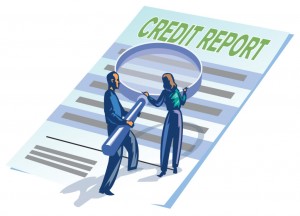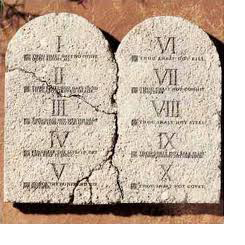Can you really get your credit report for free?
July 28, 2013 | Posted by Blair Warner | 1 Comment“What’s this about free credit reports? I have gone to several websites like freecreditreport.com and creditchecktotal.com, even CreditKarma.com thinking they offered free credit reports and scores. It seems they are not really free, and some include scores and others don’t. Credit Karma doesn’t even give you your real credit reports! It’s confusing!”

Free credit Reports! Hhhmmm… really?
The above quote is what someone who called in from our website said almost word-for-word. Unfortunately, she is right. There is no free lunch, as they say. The sites she mentioned, and many more, are not really free, even if the word “free” is displayed somewhere. Furthermore, it is not always clear what you are getting. Creditkarma.com, for example, gives the impression you are getting your credit scores and reports, but in reality they have their own “credit management” platform that does not include your real credit report, only partial information pulled from it. In my opinion, it is this small word free coupled with credit reports or credit scores that throws people off because they have heard that you can get your credit reports somewhere for free. There is only one place where your credit report is 100% free, with no bait and switch, or “small print”, or a catch. More on this in a moment.
Here’s how they work:
Except for sites like creditkarma.com, here’s how most of them work. First, in various catch phrases and combinations of products offered (read each carefully), they tout in big print that you get credit scores and/or credit reports from all three credit reporting agencies, Transunion, Equifax and Experian , with call to action buttons saying things like “Try it Free”, or “Get Started Now” and “Click Here to Start”. However, usually in small print, they state it is a free trial for 7 or 14 days. At the end of the free trial you are immediately transformed into a monthly credit monitoring customer, which costs between $14.95 and $29.95 per month, depending on the company. The ones that only give a 7 day trial are particularly tricky. Your reports aren’t usually available for 3-4 days due to “processing”, which gives you 3 days to view it. There hope is that you will “accidentally” pass the 7 day mark without cancelling the trial. As a rule, it is my opinion to avoid the 7-day offers. If you don’t cancel within the 7 days, they immediately charge you their monitoring fee. Additionally, needless to say, it is not always easy to cancel.
Tip: Some offer a printer-friendly version. if you print it out immediately, and make sure to call to cancel, then, depending on the site’s offer, you could actually get a free credit report.
Credit Karma is truly free, but you don’t really get all your reports and scores, only ONE score, as mentioned above, and their proprietary credit management platform. Credit Karma is, in my opinion as a credit consultant, useless, and useless translates in my book as a gimmick, of sorts, because customers think they are getting something useful. (Update 6/14/15: Since the writing of this original post, Credit Karma now offers scores and reports for two of the big three credit reporting agencies, Equifax and Transunion. They still don’t offer information from Experian. Keep in mind that the scores they provide are NOT your FICO scores).
The ONLY place you get a free credit report without pitfalls to avoid, and hoops to jump through is AnnualCreditReport.com. The Fair Credit Reporting Act (FCRA) requires the there major credit bureaus to provide one free credit report per year. You can get one at a time each quarter, or all three at once, once each year. Keep in mind, though, that this does not include scores, FICO nor VantageScores. Go here for a comparison of the FICO Score and Vantage Score. Most lenders use FICO, especially mortgage lenders.
Our favorite paid site is Privacyguard.com and instructions for pulling your credit so that we can give you a free credit report evaluation can be found here. You get all three full reports, and all three VantageScore credit scores. Privacyguard.com gives you a 14-day trial for free, and then only costs $19.95 per month for monitoring. Monthly monitoring is not necessary all the time, but we do recommend it if you are in credit repair and re-building phases, or looking to do something requiring credit in the near future. (We are NOT affiliated with privacyguard.com)
Has this been helpful? Please feel free to commment or share on social media. We like helping people.
![]() Tweetable Takeaways Include:
Tweetable Takeaways Include:
- There is only one place where your credit report is 100% free, with no bait and switch, or small print (Click to tweet)
- The Fair Credit Reporting Act (FCRA) requires the three major credit bureaus to provide one free credit report per year. (Click to tweet)
- Most lenders use FICO (credit scores), especially mortgage lenders. (click to tweet)
By Blair Warner




 A common question I get asked is, “what is the secret to a good credit score?” I always hate to answer it so matter-of-factly and quickly because I know they are hoping I can perform magic. The simple answer is, though, the only way to get one is to demonstrate financial responsibility. “Creditors don’t care about how many millions you may have in your investment account, it’s how you use your credit,” says Maxine Sweet, vice president, public education for Experian.
A common question I get asked is, “what is the secret to a good credit score?” I always hate to answer it so matter-of-factly and quickly because I know they are hoping I can perform magic. The simple answer is, though, the only way to get one is to demonstrate financial responsibility. “Creditors don’t care about how many millions you may have in your investment account, it’s how you use your credit,” says Maxine Sweet, vice president, public education for Experian.









